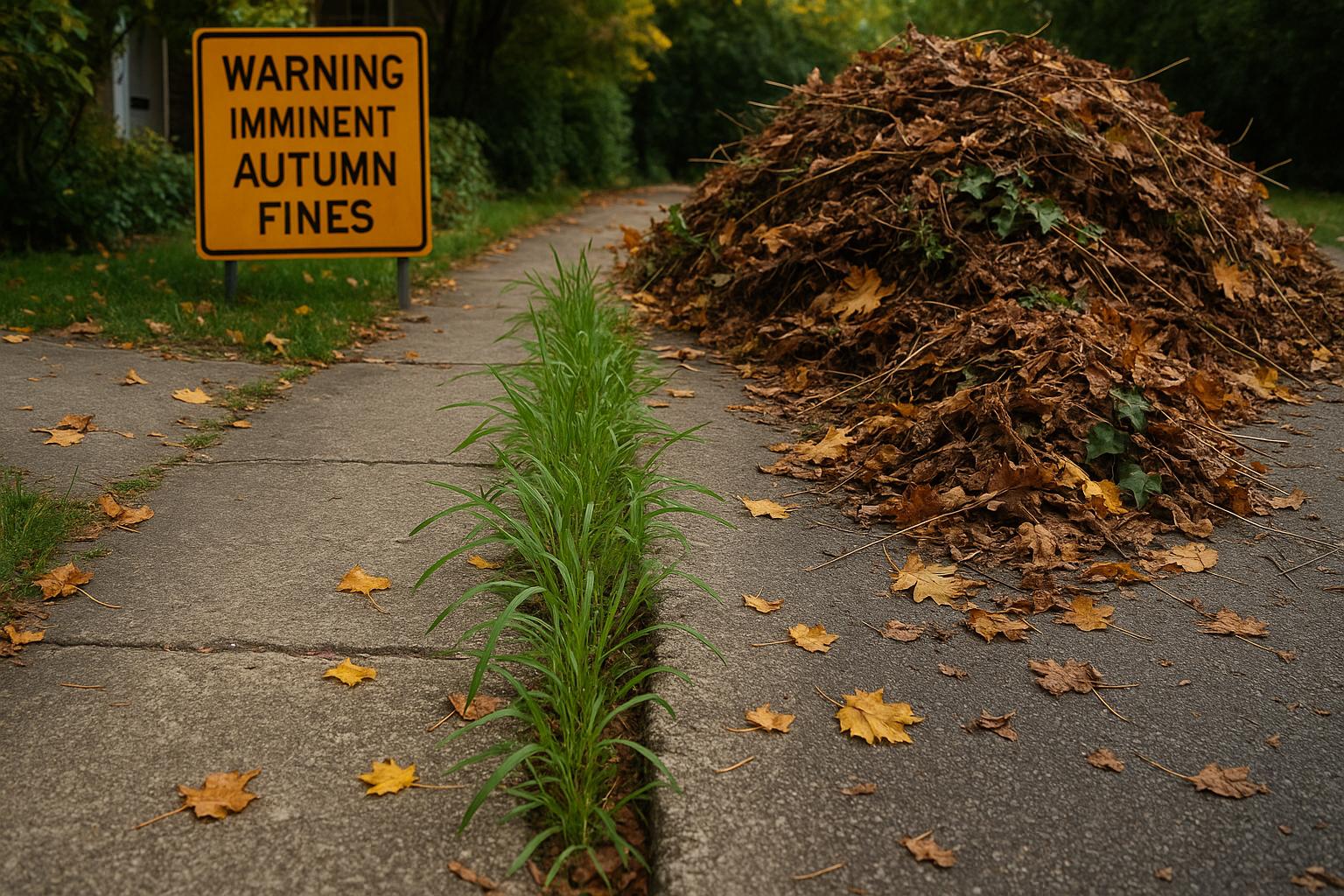As autumn deepens, gardeners and homeowners are being warned about common yet costly mistakes in managing fallen leaves and garden waste. While tidying up garden debris such as leaves and twigs may seem like a simple task, local authorities have emphasised that improper disposal can lead to significant penalties.
Ali Lijee, a waste management expert from Rubbish.com, highlights a frequent error: placing leaves in the wrong bins. Many households mistakenly put leaves, especially when dry, into recycling containers. However, leaves, grass cuttings, and twigs should be disposed of in the garden-waste bin, not the recycling or general waste bins. When wet, leaves can turn slimy, contaminating paper, cardboard, and plastics, which hampers recycling efforts. Some councils now treat persistent contamination as an offence, with fines ranging between £80 and £110 depending on the local authority.
Another key issue concerns sweeping leaves onto roads or into drains. Under the Environmental Protection Act 1990, depositing garden waste on public property can result in Fixed Penalty Notices (FPNs) of £100 to £150. Lijee advises residents to keep their garden waste on their property, either bagged correctly or composted, warning that once leaves leave private property, they become the responsibility of others, often prompting fines.
Using black plastic bin bags for leaf disposal also presents problems. The majority of UK councils require either compostable liners or loose garden waste placed inside green bins. Black plastic bags can contaminate the entire bin’s contents, leading to missed collections or fines of around £60 for improper waste presentation.
Well-intentioned individuals who leave bags of leaves beside public bins or in parks hoping for council collection may inadvertently commit fly-tipping, which is treated as illegal dumping. Penalties for fly-tipping start at £150 and can increase to £400 for repeat offences.
Additionally, burning leaves or garden waste in urban areas can attract penalties. Many councils enforce strict rules on burning, as smoke, ash, and odour may constitute a statutory nuisance under the Environmental Protection Act, resulting in on-the-spot fines between £100 and £150 or more if further enforcement is necessary.
Rather than disposing of leaves in ways that risk fines, specialists suggest utilising fallen leaves for mulching. Scattering leaves across lawns, flower beds, and plant containers can protect plants from winter’s harsh conditions, offering an environmentally friendly alternative to waste.
Complementing these warnings, local councils such as Gateshead and Manchester emphasise their commitment to maintaining clean streets via litter and debris removal services. Both councils issue Fixed Penalty Notices for littering, with Gateshead issuing fines of around £80 and Manchester’s penalties ranging from £75 up to £2,500, depending on the severity. These councils encourage residents to report littering, fly-tipping, and blocked drains, underscoring collective responsibility in maintaining local environments.
The legislative framework across the UK governs the disposal of garden and street litter, assigning responsibility among local councils and highways authorities for clearing debris from various types of roads. Through enforcement of environmental and waste management laws, authorities aim to ensure that residents understand the importance of proper garden waste disposal to prevent litter contamination, maintain clean public spaces, and avoid costly fines.
With autumn’s natural cycle of leaf fall arriving annually, these guidelines serve as a timely reminder for gardeners to be mindful of how they manage their garden waste, promoting both environmental care and compliance with local regulations.
📌 Reference Map:
- [1] KentLive - Paragraphs 1-7
- [2] Gateshead Council - Paragraph 8
- [3] Manchester City Council - Paragraph 8
- [5] CPRE - Paragraph 9
Source: Noah Wire Services
